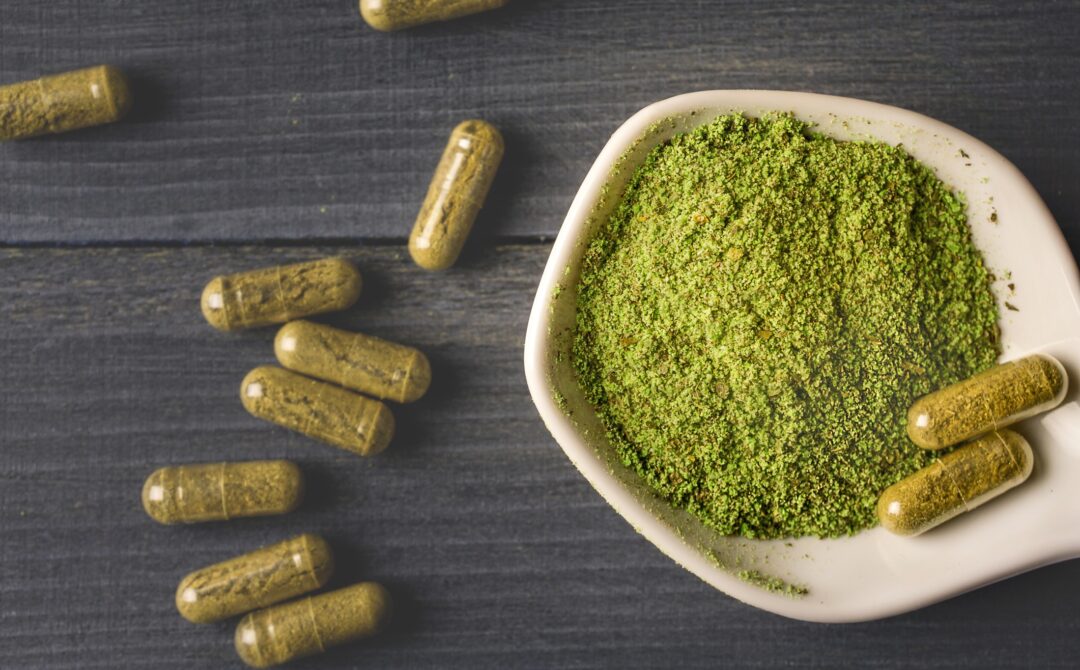Researchers at the University of Florida, Gainesville, conducted a study on rats to help determine if there are changes in pharmacokinetic properties when commercially available kratom and cannabidiol (CBD) products are administered concomitantly. They explained, "Due to the complicated pharmacology of kratom and the poorly understood mechanism of action of cannabidiol, it is essential that research into the interaction potential of these two natural products is performed, as kratom and cannabidiol are being utilized to self-treat a variety of conditions with no safety data and little to no controlled preclinical or clinical study on the interaction potential." They noted that both are used to self-treat a variety of conditions, including anxiety, pain, and insomnia.
The finding, as outlined in the journal Pharmaceutics: Concomitant administration of cannabidiol, there was a 2.8-fold increase in the exposure of the most abundant kratom alkaloid, mitragynine, and increases in the exposure of other minor alkaloids. "The results demonstrated that when kratom is dosed concomitantly with cannabidiol, the systemic exposure of the psychoactive compounds found in kratom is increased," the researchers concluded. "Caution must be exercised when administering cannabidiol and kratom products because the clinical relevance of the interactions described here is unknown. Further studies to better understand the mechanism of the pharmacokinetic interaction as well as its pharmacodynamic significance are warranted."
Earlier this year, researchers from the University of Florida, Johns Hopkins University School of Medicine, National Institute on Drug Abuse, and San Diego State University/University of California San Diego, studied the effects of kratom on driving. They concluded: "Using kratom before driving appears routine, however, self-reported and simulated driving findings suggest kratom effects at self-selected doses among regular kratom consumers do not produce significant changes in subjective and objective measures of driving impairment. Research is needed to objectively characterize kratom’s impact on driving in regular and infrequent consumers."
About kratom
The benefits of kratom for chronic pain have been debated within the natural products industry. In a column for WholeFoods Magazine, Jacob Teitelbaum, M.D., maintained that kratom has a lower risk than opiods. “With one third of Americans suffering with chronic pain, approximately 50,000 preventable U.S. deaths each year from arthritis medications (e.g. NSAIDs like ibuprofen), and 5,000 yearly deaths from prescribed narcotics used as directed, we clearly have a major problem in how we treat chronic pain,” Dr. Teitelbaum wrote. “Having effectively treated thousands of people with fibromyalgia and other forms of severe chronic pain, and published a number of studies and textbook chapters on this, one simple fact has become very clear: Virtually all pain can be effectively treated, by using the entire healthcare toolkit. This includes both natural and prescription options, as well as socially controversial natural treatments such as marijuana, hemp oil, and kratom.”
Also commenting in the column, Ginevra Liptan, M.D., noted, "Kratom does have exciting therapeutic potential as a pain treatment, but for it to be really useful medically we need more information about safe dosing and interactions with other medications and access to high quality, standardized products."
As the Council for Responsible Nutrition (CRN) recently pointed out on LinkedIn, kratom is not a legal supplement, as it has never been approved by the FDA.
Calls for responsible kratom legislation
As WholeFoods Magazine has reported, the American Kratom Association (AKA) is working to enact proactive legislation to protect the rights of kratom consumers and ensure that consumers have access to safe products. Mac Haddow, AKA Senior Fellow on Public Policy, has said: “The American Kratom Association recognizes that every effort should be made to keep kratom risks low, and protect consumers from adulterated and contaminated kratom products. With appropriate FDA consumer regulation, we can maximize the potential for kratom to be responsibly used for the improvement of health and well-being of individuals and public health in America.”










